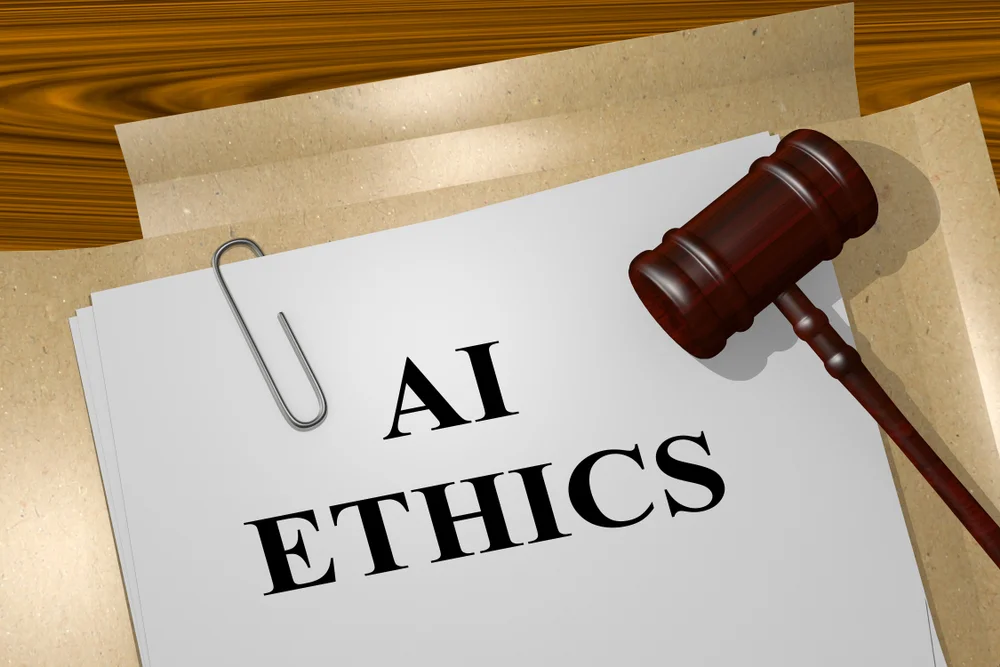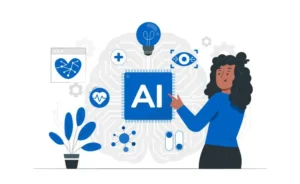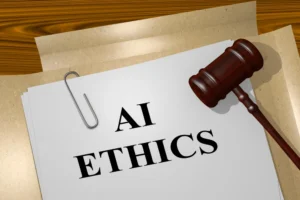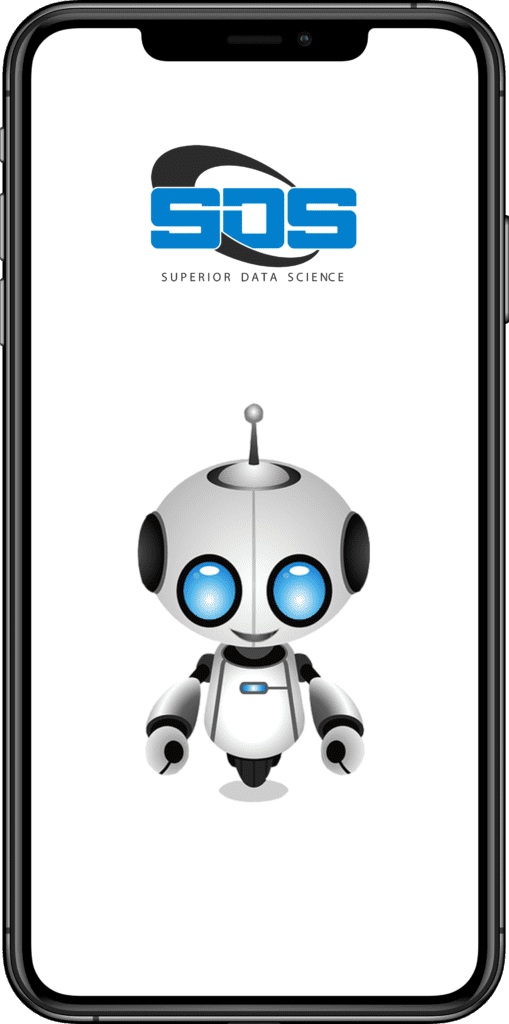Generative AI, with its ability to create content autonomously, has brought about a technological revolution. However, this innovation has ethical responsibilities, particularly concerning bias and fairness. In this article, we delve into the intricate landscape of ethical considerations in the realm of Generative AI, exploring the Ethical Aspects of AI and the implications they have on content creation and decision-making processes.
Introduction
What is Generative AI?
Generative AI is a branch of artificial intelligence involving machines creating content, mimicking human-like creativity. This encompasses a wide array of applications, from text generation to image creation.
Importance of Ethical Considerations in Generative AI
As Generative AI becomes more integrated into daily life, ethical considerations play a pivotal role in shaping how these technologies impact society. Addressing bias and ensuring fairness are critical aspects of responsible AI development. Exploring the Ethical Aspects of AI becomes imperative, prompting us to ask, “What are the Ethical Concerns of AI?” These concerns delve into the implications of Generative AI on privacy, security, and the overall well-being of individuals and communities.
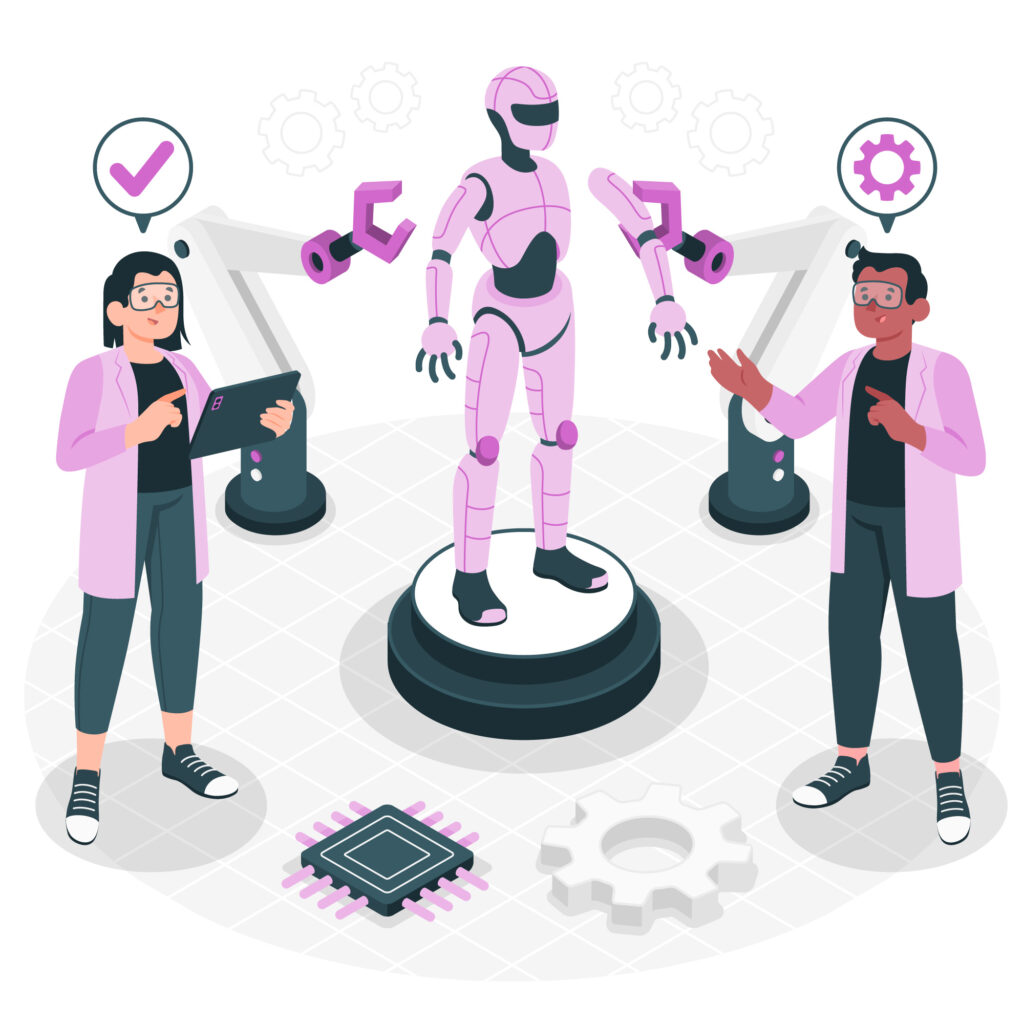
Understanding Bias in AI
Definition of Bias in AI
Bias in AI refers to the presence of skewed outcomes in the decision-making process due to inherent prejudices in the algorithms. This bias can manifest in various forms, affecting the output of Generative AI models.
Examples of Bias in Generative AI
Instances of bias in Generative AI can be observed in content creation, where the algorithms may inadvertently generate content that reflects societal biases or stereotypes. Exploring the Moral Implications of Generative AI adds another layer to the discussion, highlighting the ethical dilemmas associated with biased content creation and the potential impact on individuals and communities. Addressing and mitigating these moral concerns are crucial for fostering responsible AI development and deployment.
Fairness in Generative AI
The Concept of Fairness
Fairness in Generative AI involves the ethical distribution of opportunities and benefits without favoritism. Achieving fairness is a complex challenge that requires a comprehensive understanding of societal norms and values.
Challenges in Achieving Fairness
Navigating the intricate path towards fairness poses challenges, such as the interpretation of fairness and the dynamic nature of societal standards. Striking a balance that satisfies diverse perspectives is a continuous endeavor. Incorporating the Responsible Use of Generative Algorithms into the discourse is crucial for addressing these challenges. It emphasizes the need for ethical considerations and thoughtful decision-making in the development and deployment of generative algorithms, promoting fairness and mitigating potential biases in their outcomes.
Impact of Bias in AI on Society
Discrimination Concerns
The biased outcomes generated by AI models can lead to discriminatory practices, affecting marginalized communities disproportionately. Understanding these concerns is vital for mitigating adverse effects on society, particularly in exploring the Societal Impact of Generative AI. Recognizing how bias in generative algorithms influences social dynamics is essential for fostering inclusivity and minimizing harm.
Real-world Consequences
From employment decisions to legal implications, the real-world consequences of biased AI algorithms are far-reaching. Ethical considerations in Generative AI are crucial for preventing unjust societal outcomes. Considerations for Ethical AI Implementation play a pivotal role in shaping the impact of Generative AI on society, urging developers to adopt practices that prioritize fairness, inclusivity, and equal opportunity.
Ethical Frameworks in AI Development
The Need for Ethical Guidelines
Establishing ethical frameworks provides a roadmap for developers, ensuring responsible AI practices. These guidelines set the foundation for addressing bias and promoting fairness in Generative AI. Generative AI and Social Responsibility go hand in hand, emphasizing the importance of ethical guidelines to navigate the societal impact of AI technologies.
Existing Frameworks and Standards
Various organizations and initiatives have introduced ethical frameworks for AI development, emphasizing transparency, accountability, and user-centric design. Generative AI and Social Responsibility are intertwined as these frameworks contribute to shaping ethical practices in the development and deployment of AI technologies, guiding responsible decision-making.
Addressing Bias in Generative AI Algorithms
Techniques to Identify and Mitigate Bias
Developers employ techniques like algorithmic audits and diverse dataset curation to identify and rectify bias in Generative AI algorithms. This proactive approach aligns with the Considerations for Ethical AI Implementation, ensuring that ethical considerations are integrated into the development process, thereby mitigating potential biases and promoting fair outcomes.
The Role of Transparency in Algorithmic Decision-making
Transparent algorithms empower users to understand the decision-making process, fostering trust and accountability in Generative AI systems. Emphasizing the Societal Impact of Generative AI and the importance of transparent decision-making, developers can contribute to building public trust and understanding of AI technologies, aligning with ethical considerations and responsible use.
Ensuring Diversity in AI Development
Importance of Diverse Data Sets
Diverse datasets are essential for training Generative AI models that reflect the richness and variety of human experiences. Inclusive data collection is a key step towards reducing bias and Mitigating Bias in Generative Algorithms. By prioritizing diverse datasets, developers contribute to creating Fair and Unbiased Generative AI, fostering technology that respects and represents the diversity of the real world.

Inclusive AI Design Practices
Incorporating diverse perspectives in the design process helps create Generative AI systems that are more attuned to the needs of a global and diverse audience. Ethical Evaluation of Bias in AI becomes integral during the design phase, ensuring that the resulting models are ethically sound and free from undue influence.
User Awareness and Education
Raising Awareness about AI Bias
Educating users about the existence of bias in AI fosters awareness and encourages responsible use. Users armed with knowledge become advocates for ethical AI practices. Ethical Evaluation of Bias in AI, through user education, plays a crucial role in shaping informed and responsible interactions with Generative AI, promoting fair and unbiased outcomes.
Educating Users on Ethical AI Use
Guiding users on ethical AI use empowers them to make informed decisions, promoting responsible interaction with Generative AI technologies. By incorporating considerations for Ethical Evaluation of Bias in AI into user education, individuals are better equipped to understand the ethical implications of their interactions with AI systems.
Regulatory Measures
Current Regulatory Landscape
Governments and regulatory bodies are increasingly recognizing the need to oversee AI development, with some implementing guidelines to ensure ethical practices. The implementation of regulatory measures aligns with the broader goal of promoting Fair and Unbiased Generative AI, as regulatory frameworks are designed to mitigate risks, ensure accountability, and foster responsible AI development.
Future Trends in AI Governance
The evolving nature of technology requires continuous adaptation of regulatory frameworks to address emerging ethical challenges in Generative AI. Future trends in AI governance should focus on staying ahead of technological advancements, emphasizing the Ethical Evaluation of Bias in AI, and ensuring that regulatory measures evolve to maintain ethical standards in the rapidly changing landscape of AI development.
Balancing AI Advancements and Ethical Concerns
The Dilemma of Progress vs Ethics
The pursuit of technological advancements must be balanced with ethical considerations to prevent unintended consequences. Striking this balance is imperative for sustainable AI development, especially when considering the Ethical Challenges in AI Bias. Ensuring that progress aligns with ethical principles is crucial for navigating fairness issues in Generative AI and addressing concerns related to bias.
Striking a Balance for Sustainable AI Development
Incorporating ethical considerations into the core of AI development ensures that progress aligns with societal values, promoting the responsible evolution of Generative AI. Navigating Fairness Issues in Generative AI involves a proactive approach, where ethical considerations are integral to the development process, ensuring that advancements are made responsibly and ethically.
Industry Perspectives on Ethical AI
Case Studies of Companies Addressing Ethical Concerns
Examining how leading companies navigate ethical considerations sheds light on best practices and inspires a collective commitment to responsible AI development. Corporate Responsibility in AI Development becomes essential, requiring companies to go beyond mere compliance with regulations.
Public Opinion and Ethical AI
The Role of Public Perception
Public perception influences the acceptance and adoption of Generative AI technologies. Understanding and addressing public concerns are integral to ethical AI development. Engaging with the public in conversations about Ethical Challenges in AI Bias and Generative AI fosters a collective understanding that shapes responsible use and development, aligning technological advancements with societal values.
Shaping Ethical AI through Collective Understanding
Engaging with the public in conversations about AI ethics creates a collective understanding that shapes the responsible use and development of Generative AI. Ethical Challenges in AI Bias and Navigating Fairness Issues in Generative AI are topics that can be addressed through collaborative efforts, ensuring that public perspectives and concerns are considered in the development process.
The Role of Research in Ethical AI
Ongoing Studies and Innovations
Researchers continually explore new methods and technologies to enhance the ethical dimensions of Generative AI. Ongoing studies contribute to the refinement of ethical frameworks, addressing challenges such as bias and promoting Fair and Unbiased Generative AI.
Collaborative Efforts for Ethical AI Advancements
Collaboration among researchers, developers, and policymakers fosters a multidisciplinary approach to addressing ethical challenges, resulting in more comprehensive solutions. Ethical Challenges in AI Bias and Generative AI require collaborative efforts to create ethical advancements that benefit society as a whole.
Future Outlook
Anticipated Developments in Ethical AI
The future promises advancements in ethical AI, with increased collaboration, improved frameworks, and a deeper understanding of societal values. As the field continues to evolve, addressing Ethical Challenges in AI Bias will be central to shaping the responsible development and use of Generative AI.
The Continuous Evolution of Ethical Considerations
As technology evolves, so do ethical considerations. Continuous reflection, adaptation, and innovation are essential to staying ahead of emerging ethical challenges in Generative AI. Ethical considerations must evolve alongside technological advancements to ensure responsible development and use of AI technologies.
Conclusion
Summarizing Ethical Considerations in Generative AI
In conclusion, navigating the ethical landscape of Generative AI requires a multifaceted approach. The responsibility falls on developers, users, and regulators to collectively shape a future where Generative AI aligns with our values.
Frequently Asked Questions
Is bias in Generative AI intentional?
No, bias in Generative AI is often unintentional.
How can users contribute to ethical AI use?
Users can contribute by staying informed, questioning biased outcomes, and advocating for responsible AI use.
What role do regulations play in AI ethics?
Regulations provide a framework for ethical AI development, guiding developers and ensuring accountability.
Are there any real-world examples of companies addressing AI bias?
Yes, several companies actively work towards addressing AI bias, implementing ethical guidelines in their development processes.
What can individuals do to promote ethical AI in their communities?
Individuals can engage in conversations, share knowledge, and participate in initiatives that promote awareness and understanding of AI ethics.



